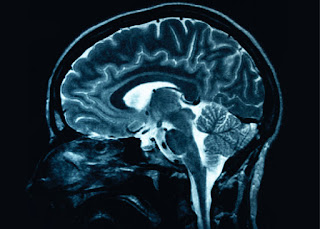 New animal research may indicate how certain diseases make people feel so tired and listless. Although the brain is usually isolated from the immune system, the study suggests that certain behavioral changes suffered by those with chronic inflammatory diseases are caused by the infiltration of immune cells into the brain. The findings suggest possible new treatment avenues to improve patients' quality of life.
New animal research may indicate how certain diseases make people feel so tired and listless. Although the brain is usually isolated from the immune system, the study suggests that certain behavioral changes suffered by those with chronic inflammatory diseases are caused by the infiltration of immune cells into the brain. The findings suggest possible new treatment avenues to improve patients' quality of life.Chronic inflammatory diseases, like rheumatoid arthritis, inflammatory bowel disease, psoriasis, and liver disease, cause sickness behaviors, including fatigue, malaise, and loss of social interest. However, it has been unclear how inflammation in other organs in the body can impact the brain and behavior. The researchers found that in mice with inflamed livers, white blood cells called monocytes infiltrated the brain. These findings support previous research demonstrating the presence of immune cells in the brain following organ inflammation, challenging the long-held belief that the blood-brain barrier prevents immune cells from accessing the brain.
Using an experimental model of liver inflammation, our group has demonstrated for the first time the existence of a novel communication pathway between the inflamed liver and the brain,' said the study's senior author Mark Swain, MD, Professor of Medicine at the Un iversity of Calgary. Swain and his colleagues found that liver inflammation triggered brain cells called microglia to produce CCL2, a chemical that attracts monocytes. When the researchers blocked CCL2 signaling, monocytes did not enter the brain despite ongoing inflammation in the liver.
Liver inflammation also stimulated cells in the blood to make an immune chemical (TNFα). When the researchers blocked the signaling of this immune chemical, microglia produced less CCL2, and monocytes stayed out of the brain.
In the mice with inflamed livers, preventing the entry of monocytes into the brain reduced sickness behaviors; mice showed more mobility and social interaction. These findings suggest that people with chronic inflammatory diseases may benefit from treatments that limit monocyte access to the brain. "Sickness behavior significantly impacts quality of life. Our findings further our understanding and may generate potential new avenues for treatment of these often crippling symptoms," said Swain.
'The brain is the master coordinator of many of our bodies' defense responses, so it must be able to sense injury and inflammation in distant body organs. This study starts to explain the peripheral communication signals that activate the brain," said Nancy Rothwell, PhD, DSc, at the University of Manchester, an expert on brain inflammation who is unaffiliated with the study.
Julie Beyer, MA, RDN
Author, Speaker, Patient Advocate
 Helping Yourself Is the First Step to Getting Well
Helping Yourself Is the First Step to Getting Well
For step by step guidance for creating your own personal interstitial cystitis meal plan, see: Confident Choices®: Customizing the Interstitial Cystitis Diet.
For some basic, family-style, IC bladder-friendly recipes, see: Confident Choices®: A Cookbook for Interstitial Cystitis and Overactive Bladder
For health care workers: Interstitial Cystitis: A Guide for Nutrition Educators

Thanks for communicating to the distant body of ICers! :) This makes sense with the extensive personal research I've done about inflammation that there would be this process. Neat that researchers have made the scientific connection. So this article has me thinking what natural ways can the body block these communication signals? Interested in what you or others have to say about it.
ReplyDeleteIt's truly amazing what our bodies are capable of. I think having this ability to 'shut off' a signal might be great for chronic sufferers so they can have a better quality of life. However, I think we still need to answer more questions such as why the signal is there and what other roles does it play aside from inflammation, if any, and what are the long-term consequences of blocking the signal? Great read, thanks for sharing!
ReplyDelete-Julie